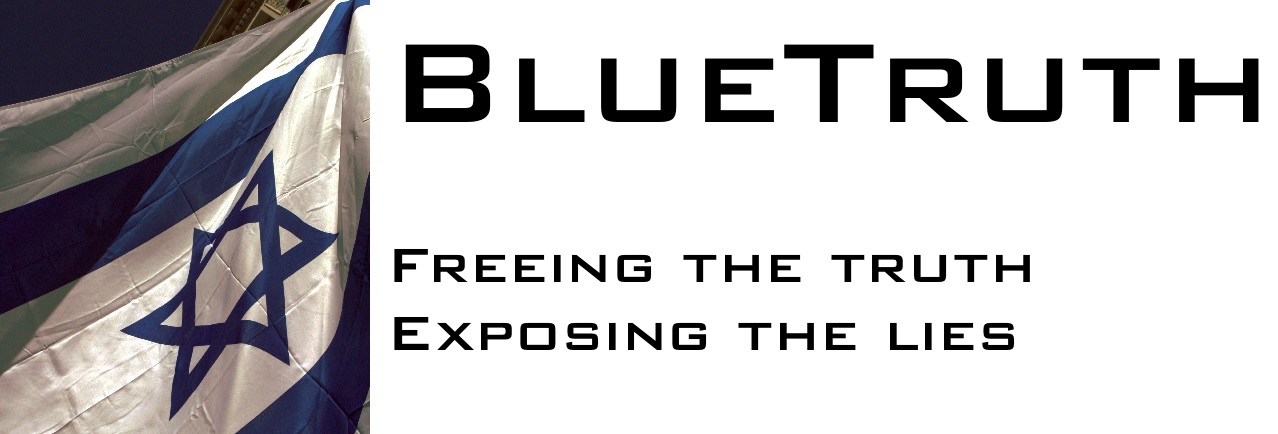As readers of this site have noted, we occasionally comment on activities related to Israel in the San Francisco Bay Area. I have reported on appearances at a local Presbyterian Church by anti-Israel activists Anna Baltzer and Alison Weir. Last week I went to check out a different event--a different Presbyterian church, a different group, and a different message. The new group is called From Here To Peace; it is a new local grassroots group formed around a single concept: that the only viable way to get a peaceful resolution of the Israeli-Palestinian conflict is to have two states for two peoples, rather than trying to eliminate the state of Israel in favor of a so-called "binational" state that would quickly become yet another Arab state and eliminate Jewish self-determination in the Jewish homeland.
As its first event, From Here To Peace brought representatives from OneVoice , itself a grassroots movement in Israel and the Palestinian territories dedicated to the concept of two states for two peoples. OneVoice is attempting to build grassroots support among both Israelis and Palestinians for a two state solution on the basis of an end to occupation and violence, and thereby to place pressure on the leadership of both sides to negotiate such a solution. It describes itself as "political but not partisan", not taking specific positions on contentious issues such as borders, Jerusalem, and details of a solution to the refugee problems but rather trying to develop grassroots consensus where it can be found and building from there. When presenting programs in the US and in Europe, it brings both an Israeli representative and a Palestinian representative to speak and to answer questions.
This event took place at, and was co-sponsored by, Westminster Presbyterian Church, whose pastor is the remarkable Reverend Douglas Huneke. Reverend Huneke is notable for his outspoken and courageous stands against anti-Israel positions taken by his own church body, the Presbyterian Church-USA.
Of the 60-70 people present, about half were recognizable from anti-Israel events such as the Baltzer and Weir speeches. This was probably a good thing--after all, those who already support the national rights of the Jewish people in our homeland don't need to be convinced.
As to the program itself, a film by OneVoice described the organization's position against violent extremism on both sides and commitment to non-violent action and the "language of mutual recognition". The film also noted that OneVoice has offices in Tel Aviv run by Israelis, and in Ramallah and Gaza run by Palestinians, though the US-based staff member did note that their activities in Gaza have been met with harassment by Hamas. Following the film, the two OneVoice members spoke about their work with OneVoice. The presentation by Malaka, the Palestinian woman from Tulkarm was interesting--she described how when she was growing up (she is 29), she and her friends could easily travel to Israel and throughout the West Bank and Gaza; however, with the outbreak of the Second Intifada, life changed dramatically because of checkpoints, travel restrictions, and IDF incursions. Without intending to, she verified what Israel advocates have been saying for years-- that the checkpoints were a response to the terrorism being inflictged upon Israeli civilians. The Israeli representative, a 24 year old from Tel Aviv named Uri, had served in the Israeli Navy prior to attending Tel Aviv University where he became involved with OneVoice. He noted that he majored in both biology and diplomacy-- the latter skill proving a very useful one during the Q&A period.
Most of the questioners were clearly hostile to Israel, and addressed questions to Uri as if he were representing the Government of Israel rather than a peace group. He was asked about an incident the previous night in which the Israeli Navy had detained anti-Israel activists offshore of Gaza (which of course he could not discuss in detail as he wasn't privy to any details of this), and he responded to accusations that the Israeli Navy would open fire on Gaza fisherman just for target practice by saying that those accounts were simply wrong. He also handled a question about an alleged home demolition in Israel by talking about trying to overcome extremists on both sides of the conflict (I think that the implication was lost on the questioner). The two representatives clearly did not agree on everything-- Uri talked about ending the occupation but perhaps with minor territorial adjustments, but Malaka insisted that Israel will have to withdraw from every inch of lands conquered in 1967. In answer to a question about the role of US aid to Israel, Uri suggested that with a peaceful settlement Israel will have less need for US aid, while Malaka thought that the purpose of US aid is to help create conflict between Israelis and Palestinians. However, in response to a very direct question about support among their people for a "one-state" solution, both Malaka and Uri were in complete agreement-- such an arrangement would not be acceptable because each group wants its own national identity, its own civic institutions, and control of its own territory. Interestingly, Malaka was the one who spoke about Palestinians not being able to exercise their national rights as a minority.
Concern was raised by some in the pro-Israel community that this event would be yet another in a depressing series of events featuring a Palestinian anti-Israel speaker "balanced" by a Jewish anti-Israel speaker. Those who were there saw something different-- an articulate young Israeli who did not criticize his country but spoke about a future of a state of Israel at peace with a state of Palestine, and a young Palestinian who, while certainly critical of the occupation, spoke clearly about the exact same solution as the only road to peace. It's a message that needs to be heard more.
Tuesday, November 25, 2008
Subscribe to:
Post Comments (Atom)



No comments:
Post a Comment